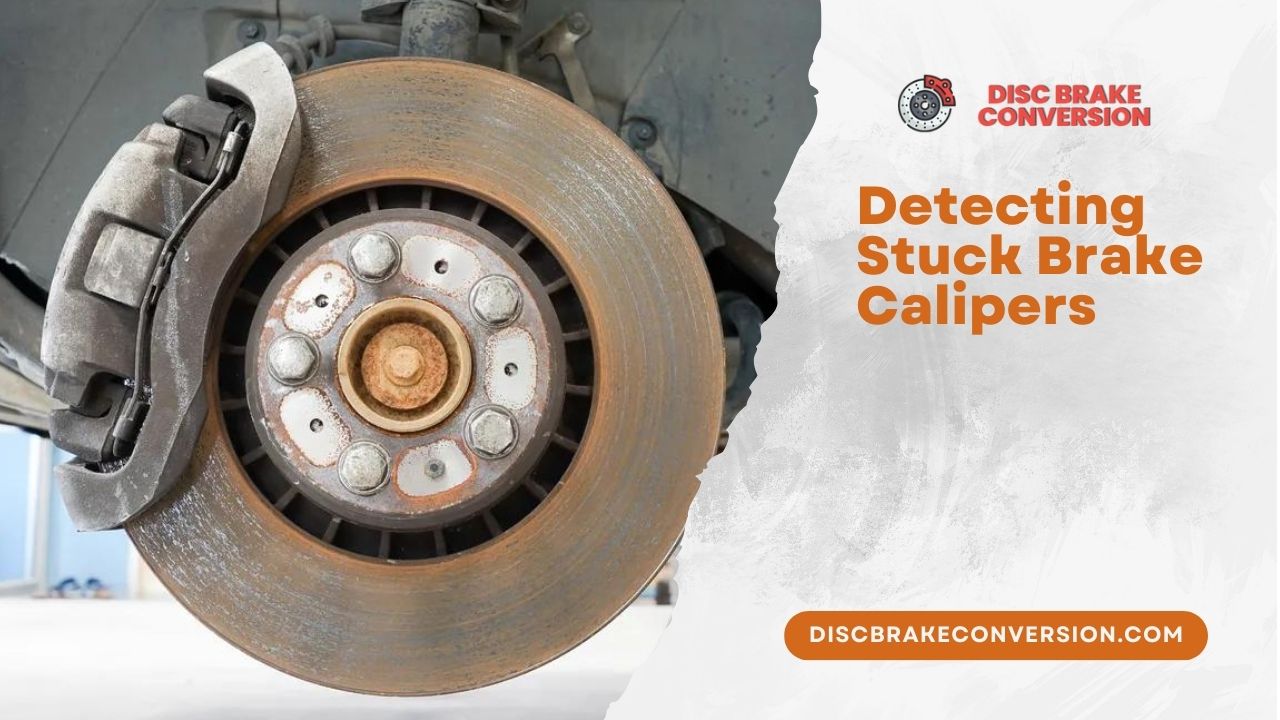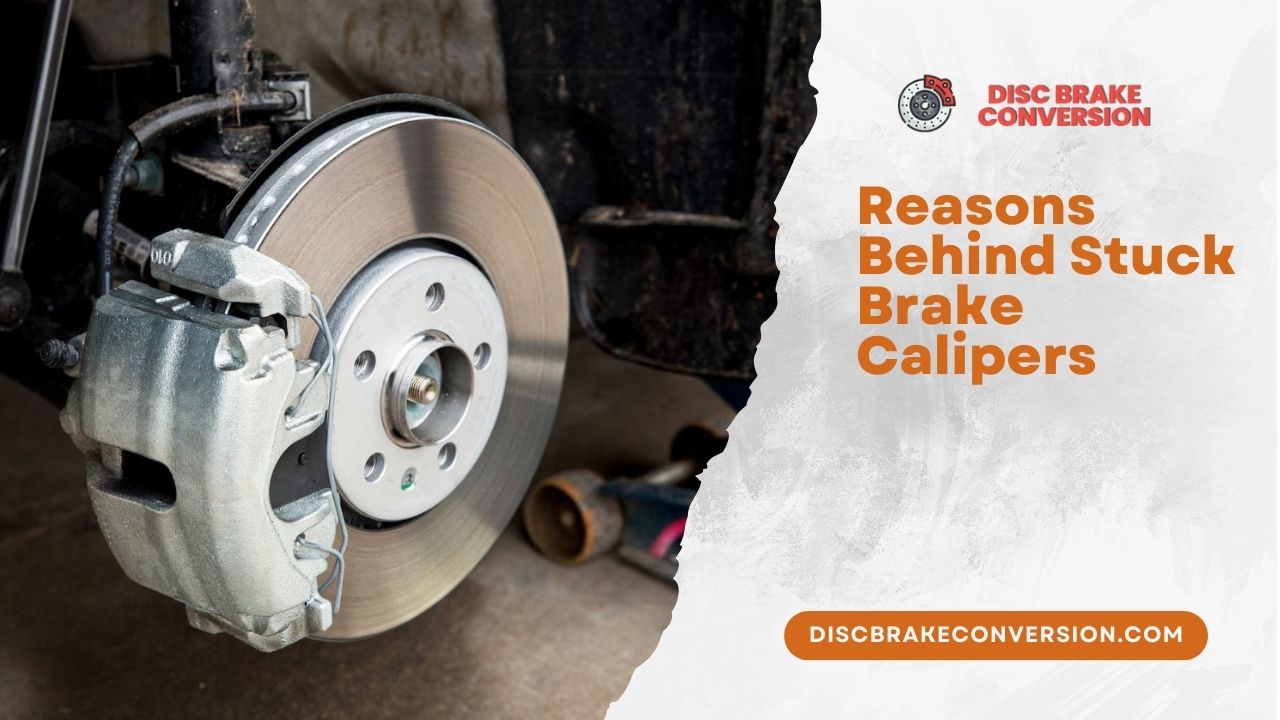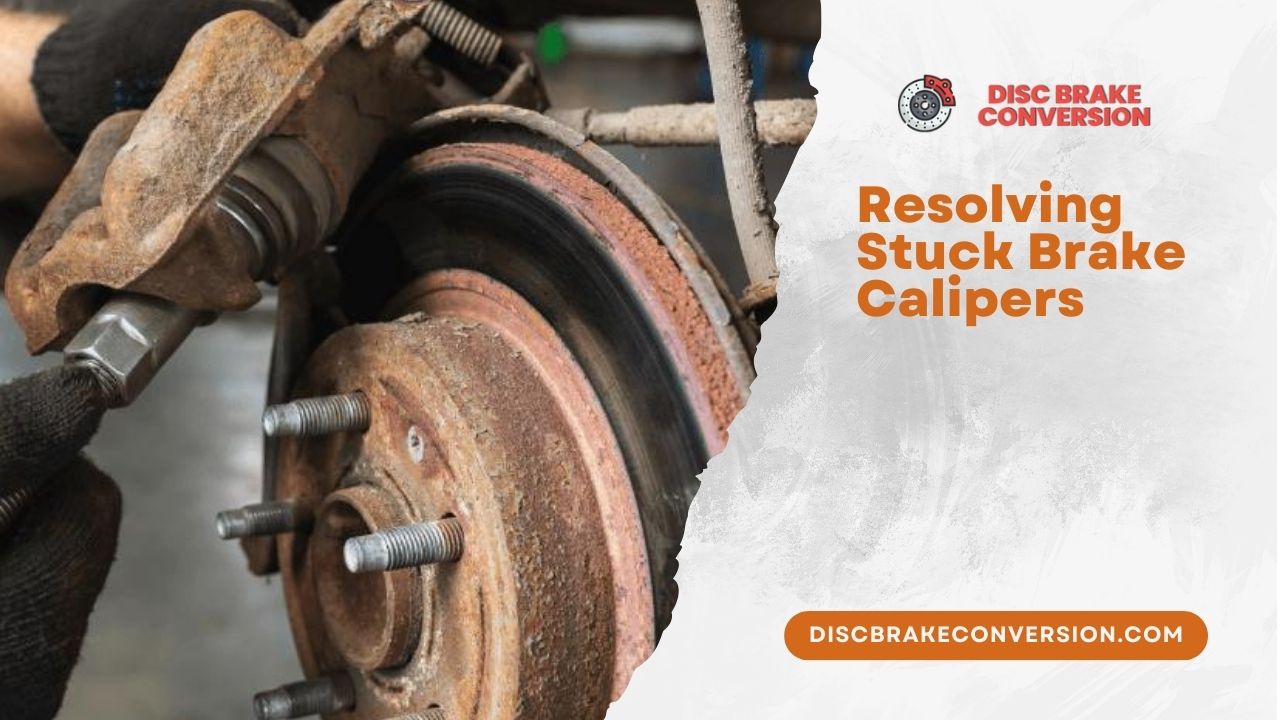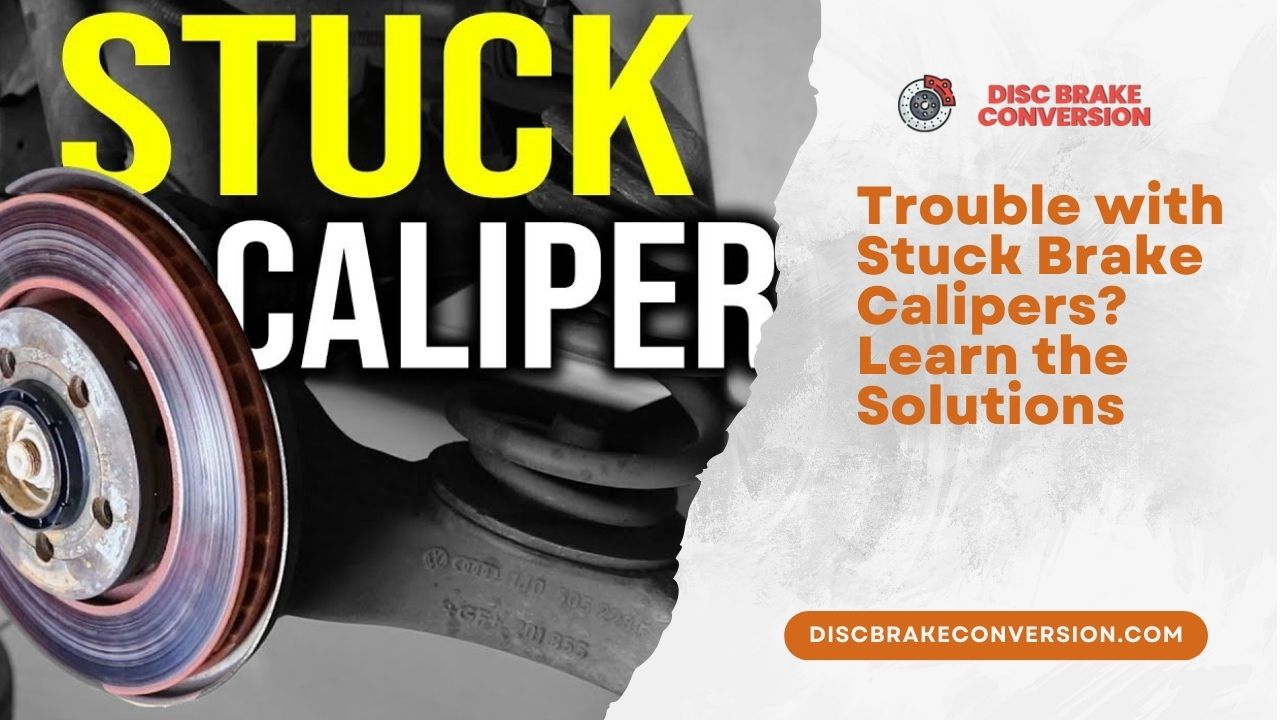The importance of car brakes extends to the driver and fellow motorists sharing the road. A vehicle’s braking system comprises various components, each vital in functionality. Among these components are the brake calipers, responsible for the vehicle’s deceleration.
Encountering the predicament of stuck brake calipers can leave one feeling uncertain about the necessary course of action. This discussion delves into the primary causes of such issues and provides insights into rectifying them.
Detecting Stuck Brake Calipers

If a driver is uncertain about their vehicle’s condition but begins noticing certain telltale signs, brake calipers may be the culprits behind the problem.
- Drifting to One Side: A car tends to veer toward the affected caliper when brake calipers become stuck. This noticeable deviation serves as an indicator, pinpointing the source of the problem. Initially subtle, this issue can escalate over time, posing a potential hazard on the road for both the driver and other commuters.
- Unprompted Deceleration: If a car starts to slow down without the driver applying the brakes, it may indicate a malfunctioning brake caliper. As these calipers become immobilized, they exert continuous pressure on the brake pads, leading to unintended deceleration. Neglecting to replace the calipers in such situations can damage the braking system, necessitating more extensive repairs.
- Deteriorating Fuel Efficiency: Fuel expenses constitute a significant portion of a driver’s monthly costs. When brake calipers become stuck, causing the vehicle to slow down even without brake input, the engine expends greater effort to operate. This, in turn, leads to reduced fuel efficiency, requiring more frequent visits to the gas pump, thereby increasing expenses over time.
- Altered Brake Position: Normal brake operation involves applying and releasing pressure, allowing the brakes to return to a neutral position after each use. In stock brake calipers, the brakes remain lowered, consistently applying pressure and compromising their functionality.
Reasons Behind Stuck Brake Calipers

Regular maintenance of the vehicle and its braking system can prevent the occurrence of stuck brake calipers. However, certain underlying issues may contribute to their malfunction. These potential causes include:
- Faulty Pistons: Rubber-wrapped pistons, when torn, create an environment conducive to rust formation. This rust can impair the proper functioning of brakes, leading to accelerated wear and tear of brake pads. Additionally, the increased strain on other components due to faulty pistons can restrict fluid flow to the calipers, resulting in immobilization. Such issues often arise from improper brake pad replacement procedures.
- Accumulated Debris: Brake calipers and pads work in tandem to facilitate vehicle deceleration. Accumulated debris and dirt on the brake pads can hinder their ability to slide freely, causing the calipers to become stuck and fail in their intended function. This issue adversely affects the overall braking system’s effectiveness.
- Bolting Concerns: Calipers are affixed to the brakes using bolts equipped with rubber toppers that enable smooth sliding. Inadequate lubrication can lead to rubber wear-down and the subsequent buildup of rubber residue near the calipers. Although this may not produce immediate consequences, the calipers can become stuck over time due to accumulated residue. Such issues often result from suboptimal brake maintenance practices.
Resolving Stuck Brake Calipers

When faced with symptoms of a stuck caliper, the appropriate course of action depends on the root cause of the problem. Applying lubricant and cleaning procedures may suffice for minor issues like debris buildup. However, if the problem extends to other braking components or results from brake wear, more extensive measures may be necessary.
- Replacement vs. Rebuilding: Replacing the calipers should be a last resort, considered only after attempting alternative solutions. Lubrication, cleaning, and even caliper rebuilding can be viable options if the issue is relatively recent and has not inflicted damage on other vehicle parts. Skilled individuals may perform caliper replacement, involving disassembly, cleaning, lubrication, and reinstallation. When opting for replacement, it is imperative to discern signs of corrosion and select an appropriate caliper brand in size and compatibility with the vehicle’s brake system.
Cost Considerations
The financial aspect of addressing stuck brake calipers involves expenses related to parts and labor. On average, elements can amount to over $700, while labor costs range from $130 to $170 per hour, contingent on location and the vehicle’s make, model, and year.
Stay Vigilant While Driving
Although a sticky caliper may initially appear inconsequential, ignoring the issue can lead to more significant problems. While operating the vehicle, it is crucial to remain vigilant for the following indicators:
- Drifting to one side
- Spontaneous slowing of speeds without brake engagement
- Diminished fuel efficiency
These signs can aid in diagnosing the presence of stuck brake calipers and prompt timely intervention.

